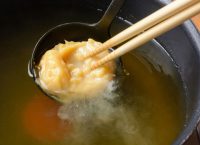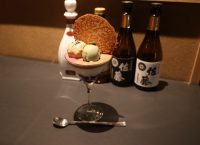Handa Somen, the versatile noodle passed down from the Edo Period to the Next generation.
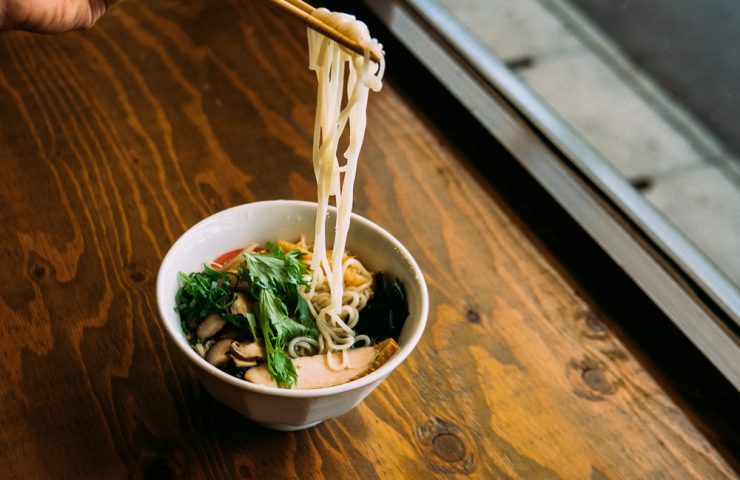
Miyoshi-shi, Tokushima-ken/Tsurugi-chō, Mima-gun, Tokushima-ken POSTED on 2019.08.01
Miyoshi-shi, Tokushima-ken/Tsurugi-chō, Mima-gun, Tokushima-ken POSTED on 2019.08.01
Tokushima Prefecture, Tsurugi Town Handa district.
In front of the eyes is the Yoshino River, which was once used for water transportation, and if you look across you will see the beautiful scenery surrounded by the Shikoku mountain ranges. In this mountainous area the “Handa Somen” a type of noodle that has been based down from Edo period is a huge part of the local food culture.
Although Somen is general are known to be made extremely thin, Handa somen are characterized by their thickness and chewy texture. Now these noodles are also served outside of the prefecture and if you live at an urban city in Japan, you may have already heard about or have had tried these noodles.
Junko Kitamuro, the third generation owner of the noodle shop “Kimuro Hakusen”, founded in 1977, has significantly contributed to the spread of the Handa Somen. Since becoming the owner of Kimuro Hakusan, with her creativity and popularity, Junko has worked to cultivate not only her own company but the Somen industry itself.
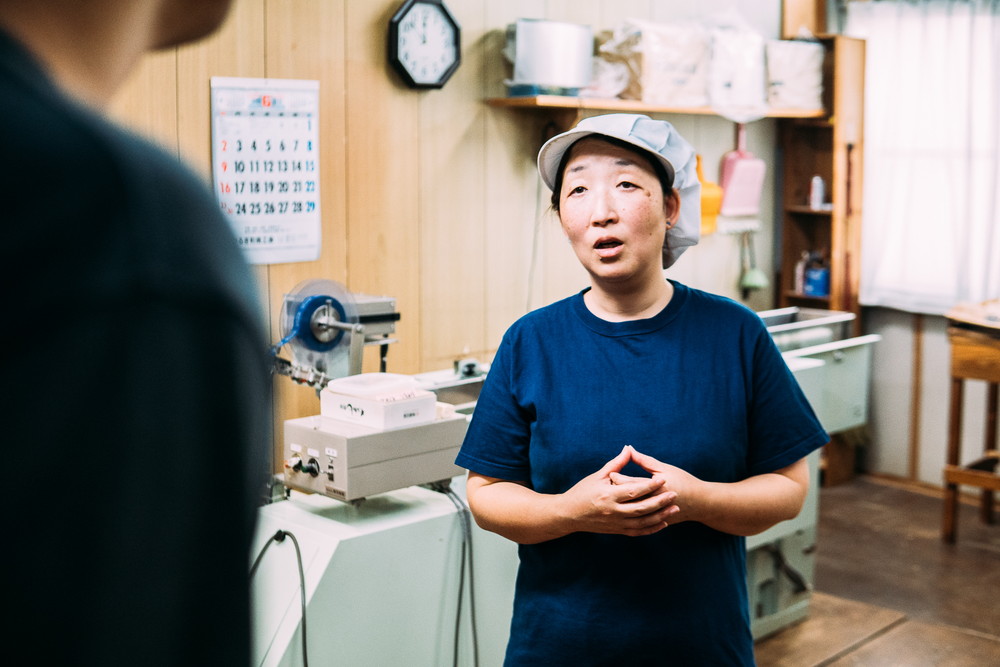
The Handa Somen, a product born from a mistake
As mentioned before, the Handa somen is known for its thick noodles and chewiness. But why is that? We were surprised to hear her answer.
“It was after the war when the Handa somen was first made. Since Handa is a mountainous region and land for cultivation was limited, it was difficult to grow rice. Hence, it became part of agriculture to make somen noodles.” says Junko. “And to answer your question to as why our noodles our thick, it’s because we had difficulty try to make it thin.
At first we were trying to make thin regular somen noodles because they sell for a higher price, but there were always some that ended up a little thicker than they are supposed to be. Since those won’t sell, we would eat them ourselves. These noodles eventually became popular since they were cheap and above all the texture that reminded people of udon was delicious.”
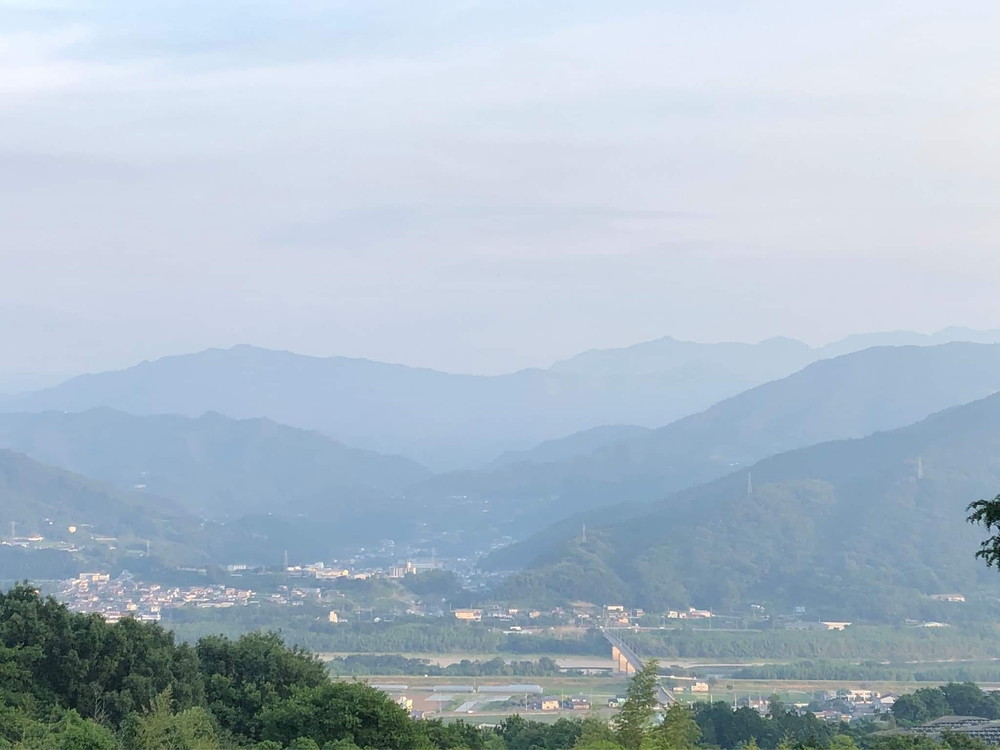
Handa somen was actually a product born from a “mistake.”
Since Handa is next doors to Kanagawa, which is famous for udon (thick Japanese noodles), udon was also a huge part of udon culture in Handa,and was often made in households. Because of this, although Handa Somen were considered as mistakes, it actually attracted the local people for its thickness and also cheapness.
Junko also told us the characteristics of Hand Somen as, “Our noodles are famous for its chewiness and smooth texture when going down the throat. To create that chewy texture we use the same wheat we use to make udon. We also started making extra thick noodles that are especially popular amongst are male guests.”
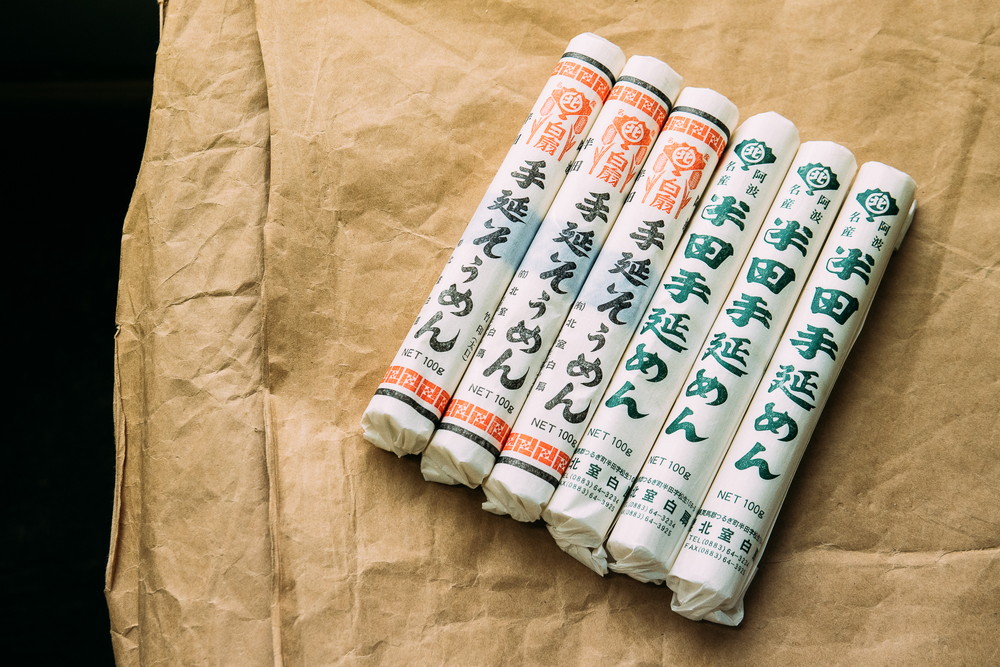
Protecting tradition while taking on new challenges
Somen noodles but with a thick and chewy texture.
Handa Somen is a unique, one and only dish. However, the industry holds to same issue that all other traditional industries are facing in Japan.
“There used to be 40 noodles making factories in the union but now there is only 23. With the aging population and change of times, a lot of factories decided to end their business in this generation.”says Junko. “Moreover the factories that are shutting down are the shops that are making noodles with the traditional hand made method or have a unique method such as drying the noodles outside. This is such a shame. I want to make sure that these methods are documented or filmed so that we can share it to later generations.”
In the Handa district. it used to be a common summer scene It was common in the summer to see noodles hanged outside to dry. However, the noodle factories that use this traditional method have grown less and less over time, and it is now a sight that is unusual to see.
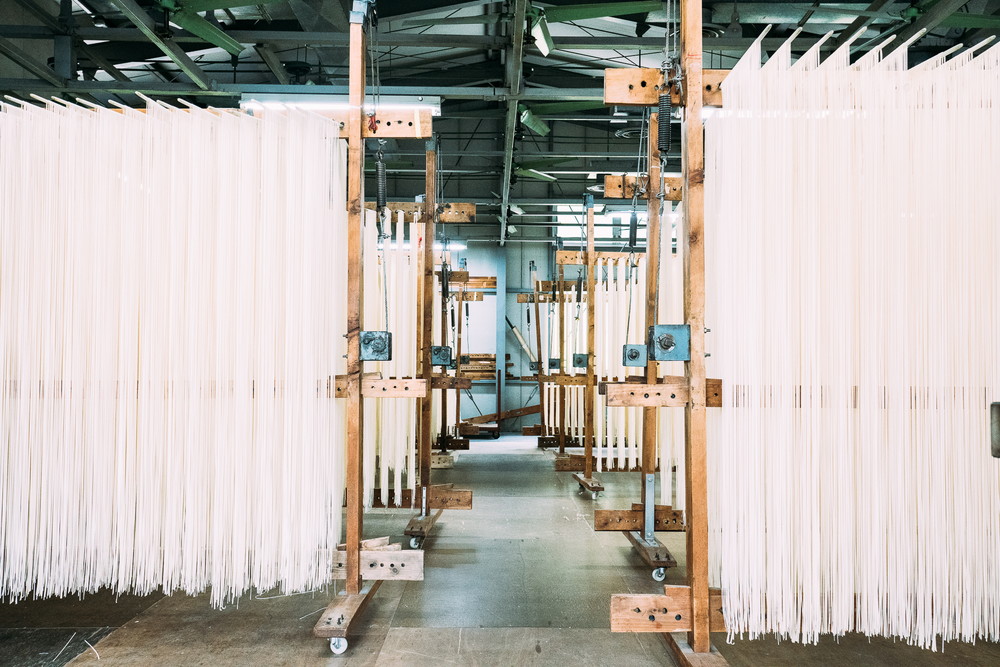
On the other hand, Junko says that in order to pass on the Handa somen to the next generation we must keep what we should and change what we must. “In order to nurture the next generation of noodle makers, me have to modernize or mechanize the methods to a certain extent. People grow old and it’s hard to continue something that takes up a lot of our energy. We should cover what can be done by machines and hand-make what needs to be. For instance, in order to check the dryness and hardness of the noodles, we need to make decisions based on climate and peoples experience. These kind of skills we gain from experience, we need to pass on the next generation.”
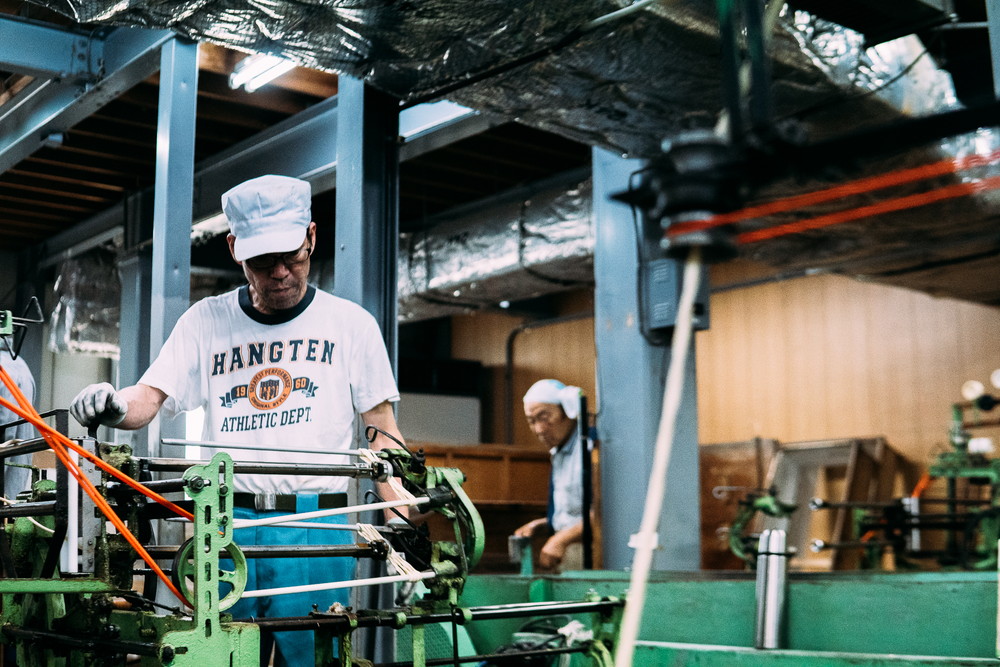
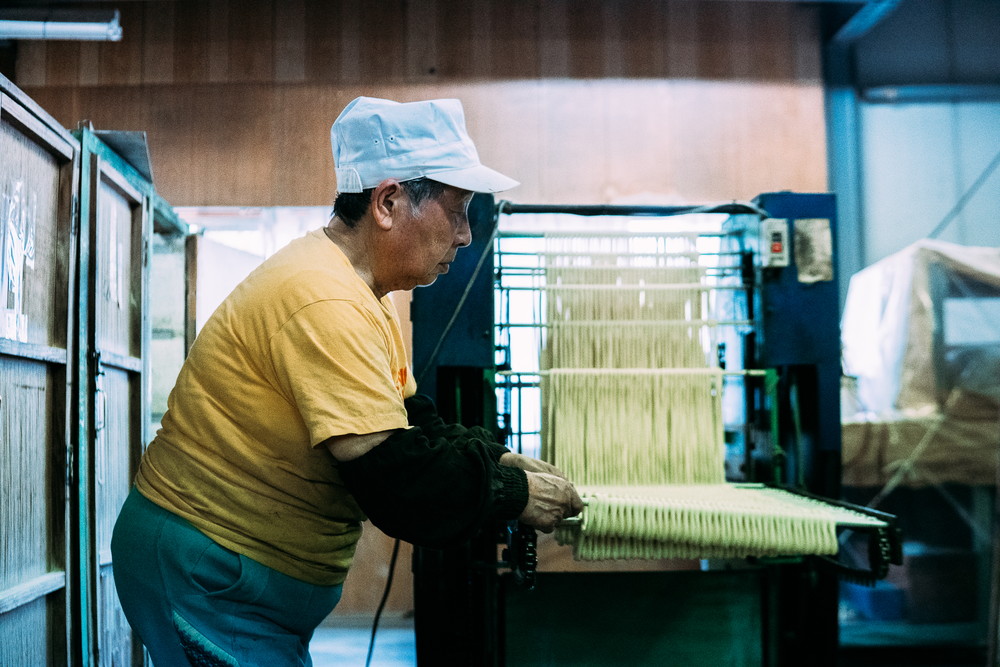
Junko is protecting the tradition that should be checked while enabling a more sustainable method in order to keep as well as further develop the Handa somen industry. In addition to this, she is also presenting new recipes that go well with the thick texture of these noodles.
“Before, there was only one traditional way of eating some noodles, but now you can cook it like yaki soba, use it instead of pasta, Chinese noodles or udon. We are creating new recipes to enjoy Handa noodles, incorporating food culture from different countries. Handa noodles are quite filling too, so I’m glad that new ways to enjoy these noodles are coming out.”
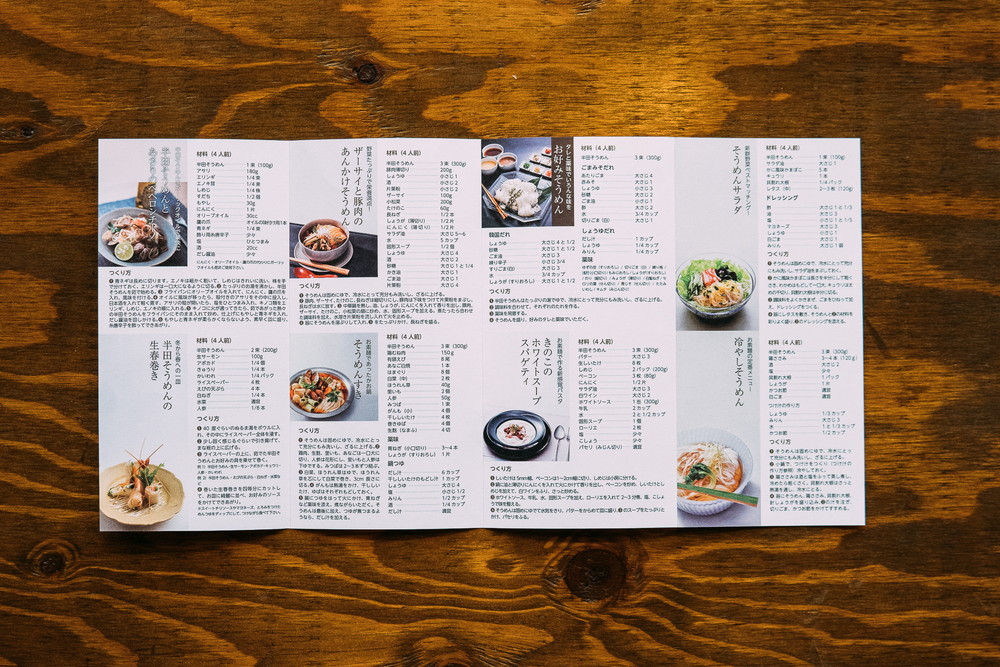
Heso salon in Tokushima offers new ways to enjoy somen
You can try Junko’s recipes at Heso Salon, a restaurant located in a shopping arcade near Awa-Ileda station near Miyoshi City Ikeda-cho, an area popular for tourists both overseas and other places in Japan.
The owner of Heso salon is Kento Nishizaki, who moved here from the Kanto regions. Although the shop is a restaurant he named the place “salon” from a wish that the restaurant becomes a place for people to meet. At the restaurant, local specialties and tourist goods are lined up.
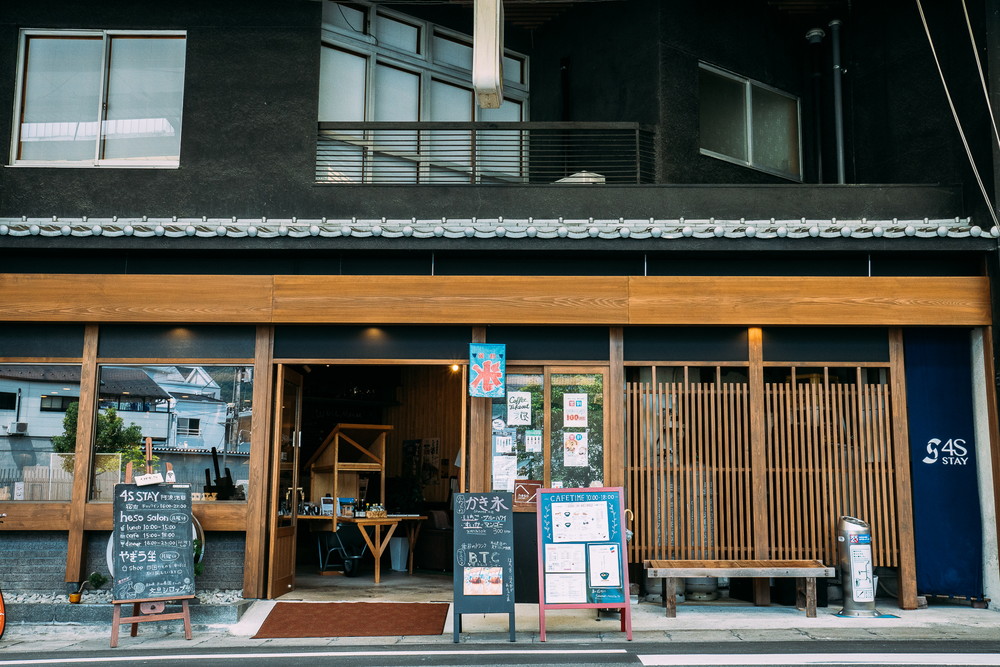
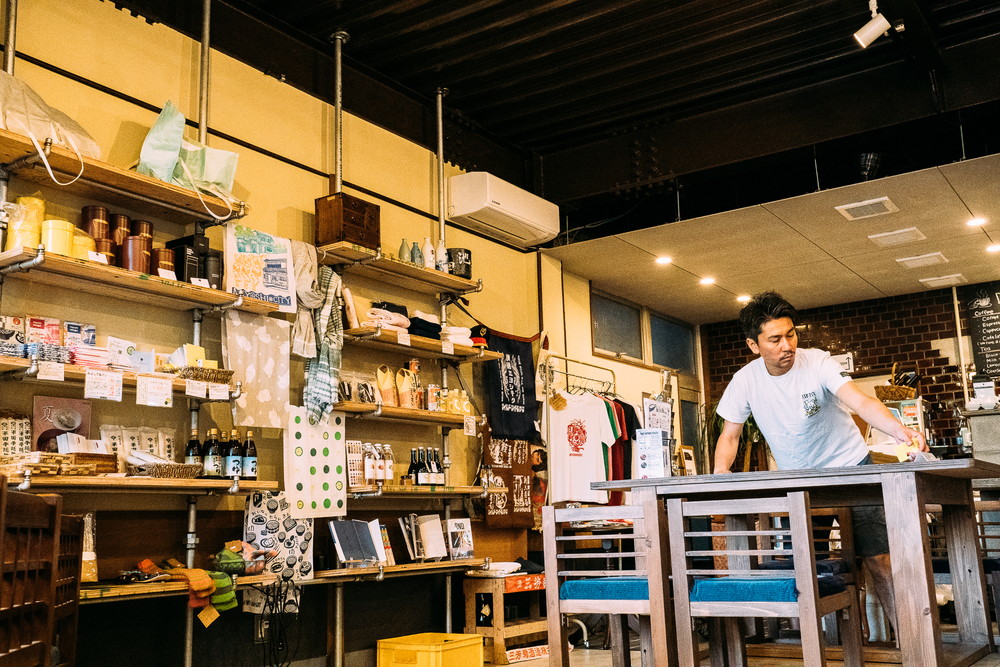
At the restaurant guests can enjoy Handa somen recipes that Junko created both basic and monthly specials. I recent hits among locals was the monthly special, Taiwan style mix noodles which is so popular that they extended the menu for the first time.
On the day of the interview, there also was a local seen at the restaurant commenting that the noodles here are delicious. The editing team also tried the basic Handa somen.
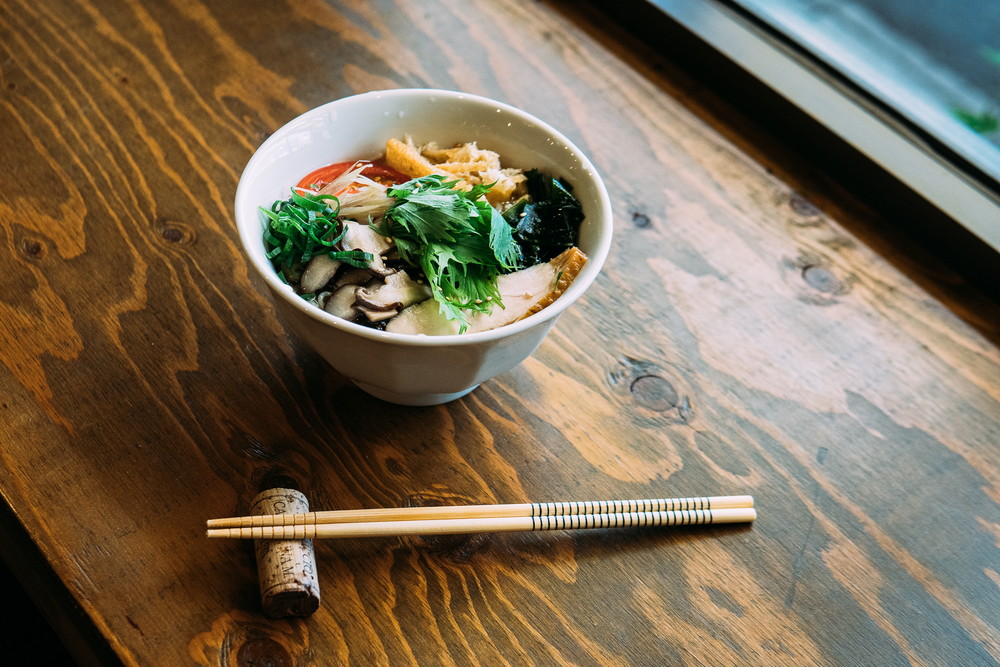
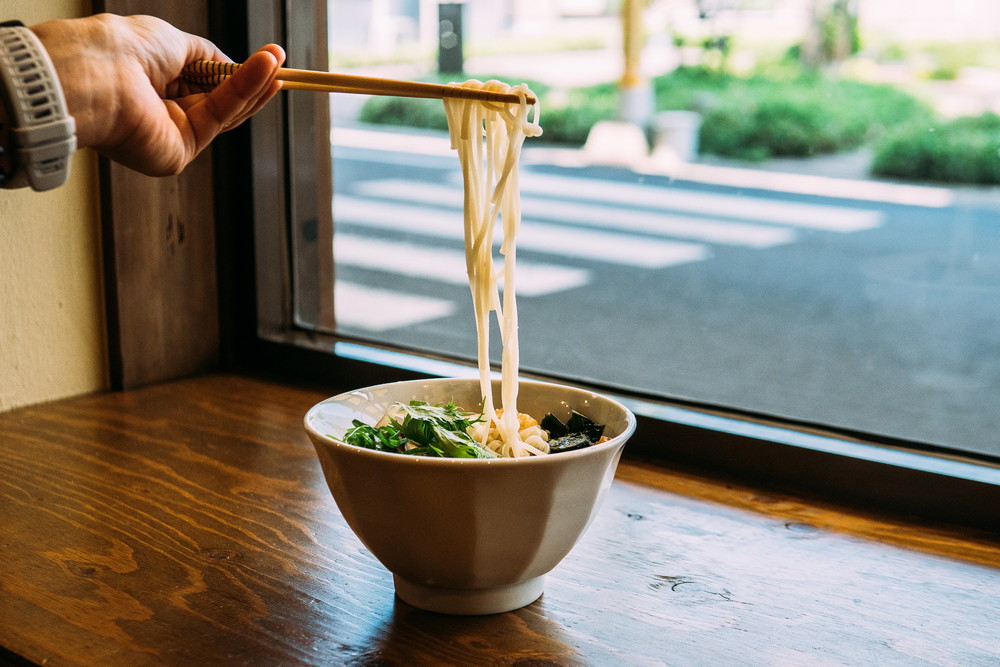
The somen was thick and chewy and were the main appeal of the dish even though there was a lot of toppings.
The taste is that of a somen but the texture reminds you of an udon. However it has the same smooth texture when it goes down your throat.
If you are a noodle lover like me you are sure to finish the bowl in a second and crave for more.
Store name: Heso Salon
Address:1804-9 Ikedachō Sarada,Miyoshi-shi, Tokushima-ken 778-0003
Phone number: 0883-70-0166
Business hours: 10:00 – 23:00
Holidays: Mondays
Website:
https://www.facebook.com/hesosalon/
https://www.instagram.com/heso_salon/
During the interview, Junko told me an heart warming episode about one of the staff members that came to inform her about a phone call. “Some of the staff members here have been working with us since I was in third grade. To me they will always be an aunty and to them, because they know me from childhood I will always be the young one (laughs). I think that what special about local industries. We will always be one big family.”
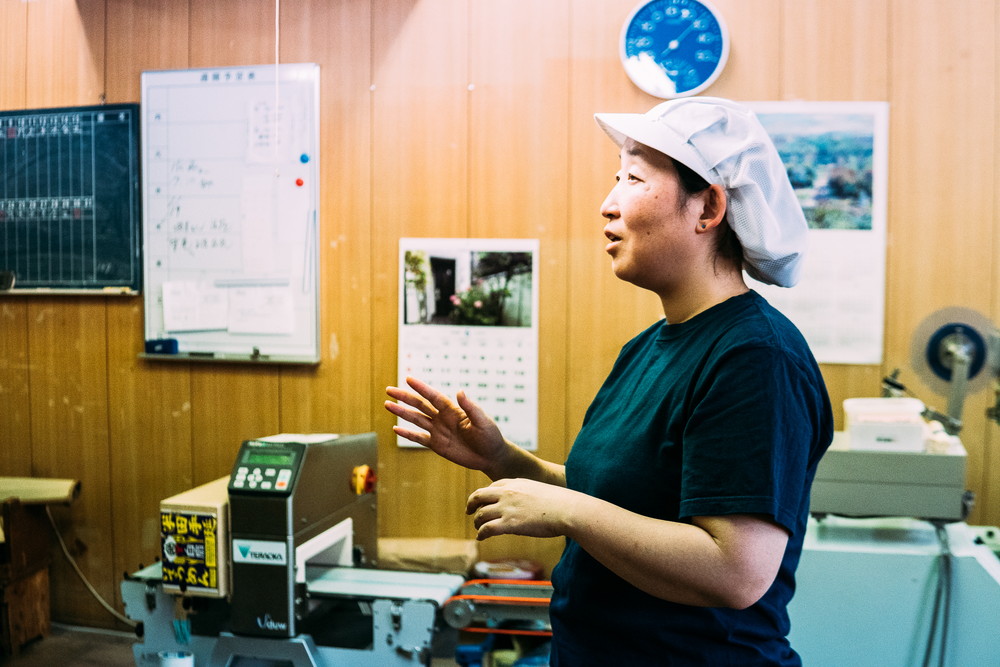
The thickness of the noodles makes them very versatile and easy to arrange into different recipes. It’s also perfect as a gift since they last long.
The Handa somen that has been carefully passed down from generation to generation will continue to be loved by many by the hands of key members like Junko that will take on the new generation
Store name: Kitamura Hakusen
Address: Matsubae 108-5 Handa, Tsurugi-chō, Mima-gun, Tokushima-ken 779-4401, Japan
Phone number: 0883-64-3234
Business hours: 8:30 – 18:00
Holidays: Every second and fourth Saturday, Sundays, National holidays
Website:
https://www.kitamuro.co.jp/index.htm (Japanese only)
- Writer
- HIroaki Hata
- Photographer
- HIroaki Hata
ソトレシピLOCAL GUIDE
-
 For more
For moreThe river guide of Shikoku CEO
Takeshi Ushio(TAKESHI USHIO)
information
Related articles
-

[NEWS] Collaboration of Japanese Kawaii Culture and Japanese Cuisine
Harajuku and Omotesando area in Tokyo are the sacred
- from:
- Minami Aoyama, Minato-ku, Tokyo
- genre:
- Experience / Eat
POSTED on 2019.11.06



